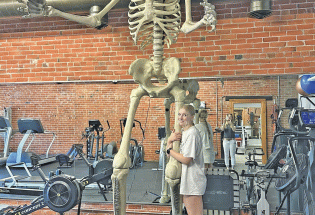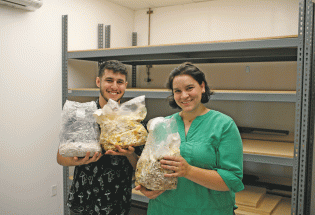Tick Tock – Daylight Saving Time begins on March 14
What do the states of Arizona and Hawaii, along with Puerto Rico, Guam and the U.S. Virgin Islands have in common? If you guessed their commonality is that they don’t observe Daylight Saving Time, then you were right.
When we set our clocks forward by one hour at 2:00 a.m. on this coming Sunday, March 14, we will often unknowingly make more changes than just the amount of sleep we get for a day or two. If that were all there was to it, the many medical articles that have been written about the effects of Daylight Saving Time would not be of much interest.
When we set the clocks forward or backward, we are not actually gaining or losing any hours of the day, naturally. What we do change, however, is the time of sunrises and sunsets. This slight change of one simple hour can easily upset the natural rhythm of our bodies. Our body rhythm (circadian rhythm) regulates important sleep patterns in addition to other critical functions.
Is that important? Medical experts generally agree that when we change the times of daylight, we may be unknowingly changing more than just the hands on a clock. That one hour extra or one hour less changes the amount of time most of us may have to be exposed to the early-morning light. That may not seem terribly important until we learn that the early-morning light is often what our bodies need to set and reset our 24-hour internal cycles.
Those internal cycles determine all phases of our health from cardiac health to sleep patterns that restore health. In fact, many studies show that there are more heart attacks and strokes within the first three of four days immediately following a time change for Daylight Saving Time. Those who have high blood pressure usually notice an increase in their pressure at this time without really knowing that it may well be due to a simple time change of only an hour.
Most medical experts have become accustomed to seeing more patients who exhibit signs of depression during these same few days after the time change. More traffic accidents than usual have been charted on the Mondays following the Daylight Saving Time changes. The experts theorize that the increase in accidents is because of the tired feeling that comes when we have changes in our sleep habits.
Take heart. We are not doomed to the negative effects of Daylight Saving Time if we take a few extra steps to guard our internal clocks rather than just the clocks on our phones or appliances.
Healthcare professionals suggest that we make extra efforts to get out in the morning sunshine. That may mean that you can figure out where you could get just a few minutes in your morning routine to change your entire reaction to the Daylight Saving Time changes.
There are many ways we can overcome some of the negative effects of Daylight Saving Time. Getting more early-morning light is just one of the easiest and handiest ways to take control of our internal clocks.
- July, 01 2021

Please wake up with 10 fingers on July 5
Independence Day is a celebration of the United States of America. After all of the...
- August, 13 2021

Long Haul Syndrome (aka Post Infectio...
There is no doubt that COVID-19, and everything it brought, changed all of our lives...
- July, 13 2023

12-foot skeleton at Berthoud Athletic...
Courtesy photoDr. Carolyn Creager, owner of the Berthoud Athletic Club and...
- July, 26 2022

First monkeypox case confirmed in Lar...
The Colorado Department of Public Health & Environment (CDPHE) has identified and confirmed the first...
- June, 10 2021

Added sugars could be compromising yo...
A 2009 report from researchers with the American Heart Association urged people to limit their...
- August, 03 2023

Ambrosia Harvest starts sprouting mus...
Photo by Will CorneliusIsaiah Chavez and Sara Del Cuore with their...

POLICEBLOTTER
Community News
Northern Water sets C-BT quota at 70% for 2024
Community News

Emotions run high during Revere Property hearing
Community News
Snowpack at 119% above normal
Community News

Karspeck to serve third term as Berthoud mayor
Community News

OPINION – No bitchin’ allowed
Community News
Roy Tripi to become principal of BHS on July 1
Community News
COMMUNITY CALENDAR:
Community Calendar – add an event
Homestead Fine Art Gallery First Fridays OPEN HOUSE
03 May 4:00 PM - 7:00 PM
Homestead Fine Art Gallery First Fridays OPEN HOUSE
07 Jun 4:00 PM - 7:00 PM
Homestead Fine Art Gallery First Fridays OPEN HOUSE
05 Jul 4:00 PM - 7:00 PM
Homestead Fine Art Gallery First Fridays OPEN HOUSE
02 Aug 4:00 PM - 7:00 PM
Homestead Fine Art Gallery First Fridays OPEN HOUSE
06 Sep 4:00 PM - 7:00 PM
Homestead Fine Art Gallery First Fridays OPEN HOUSE
04 Oct 4:00 PM - 7:00 PM

